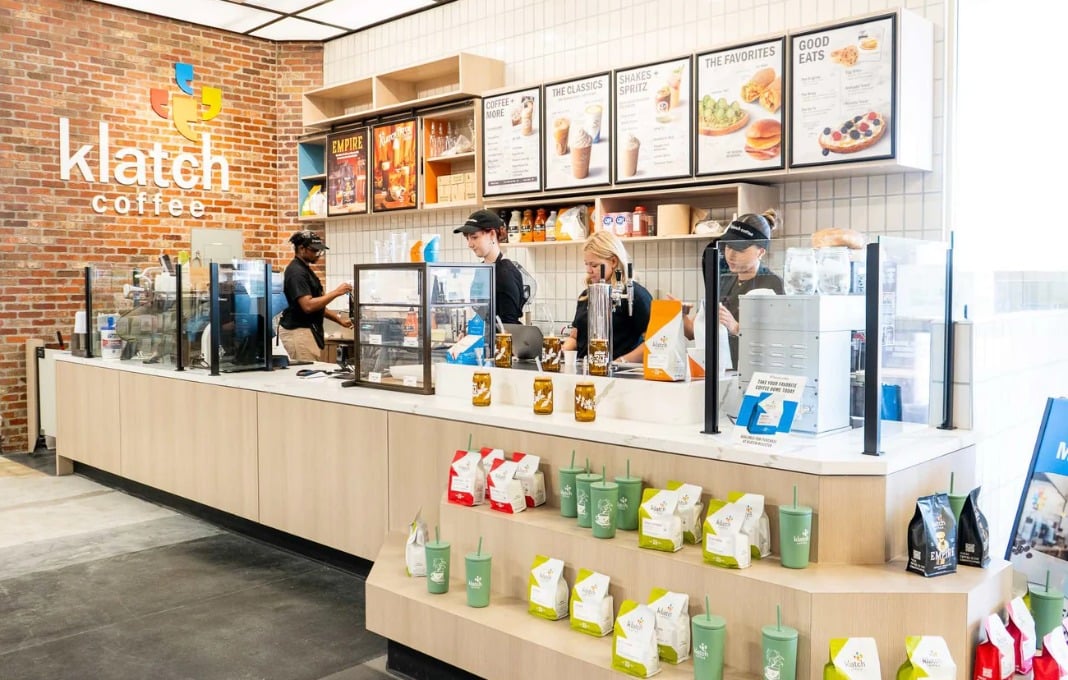Running a coffee company sounds like it should be all about the coffee. And yes, sourcing, roasting and delivering exceptional brews is at the core of our business. But as we prepare to double our footprint with 20 new locations in the next year, I can tell you without hesitation: Talent is the make-or-break ingredient. If we don’t get the right people in place, it won’t matter how good the coffee is.
The post-pandemic talent landscape has changed dramatically—especially in hospitality. Expectations around flexibility, career growth, purpose and even basic human connection have evolved. At Klatch Coffee, we’ve had to evolve with them. That’s meant rethinking how we recruit, train, retain and empower our team members at every level—from baristas to managers to our corporate staff.
We’ve learned a lot through trial and error, and we’re still learning. But here are a few of the key lessons that have helped us build a more resilient, energized team as we scale:
• Flexibility is a superpower, if you use it thoughtfully.
On the corporate side, we’ve leaned heavily into flexible scheduling and four-day work weeks. I have kids—I get it. When you can offer someone the ability to leave early one day and make it up later, or give them a consistent Tuesday off for classes, you’re solving real problems in their lives. We work lots of different hours because of our retail operations anyway, so why force an eight-to-five corporate structure when it doesn’t serve anyone? This approach has helped us attract top-level talent we couldn’t otherwise afford.
• Hire people who want to own something—and let them.
For management positions, I look for people with pent-up energy—those who have ideas they’re dying to try—and then give them ownership over their stores. We tell our managers: “Yes, we’ll set the menu, pricing, and culture, but if you want to do events at your store, try a new pastry, or build community partnerships, we’re going to let you do that.” A good manager isn’t just managing people; they’re your best marketing. One of my managers recently organized a Mother’s Day bouquet-building workshop that brought in 12 women who spent the morning making arrangements and drinking coffee. It was low-cost and low-risk, but with the potential to deepen loyalty to our brand. He didn’t ask permission—he just made it happen. That’s the energy we want. My job as CEO is to set the cultural guardrails, then trust my people to steer within those lines. In other words, give them the reins, but stay in the car.
Of course, I know some of those ideas won’t pan out. But I believe indecision is worse than failure. We encourage managers to test ideas, including new drinks. Some work, some don’t—but we always learn something and the stakes are low. The bar is: Is it intentional? Does it align with our values? If yes, go for it. As I always say: It’s coffee. No one’s going to die. Let’s see what happens.
• Create growth paths, but don’t assume everyone wants to climb.
Here’s something I learned the hard way: we’ve lost very few supervisors to other companies, but we have many who simply don’t want management responsibility. They enjoy minimal responsibility and don’t want to take on store management. This has forced us to hire externally more than I’d prefer, but it taught me to be realistic about internal promotions. Now we’re more intentional about identifying people who actually want to advance, rather than assuming everyone does.
• Be obsessed with feedback, not just metrics.
Yes, we track retention and do exit interviews. But I also personally read every Yelp and Google review for every store, every day. It takes about 30 minutes and tells me exactly what’s happening at each location. Consistent positive reviews about service? I call that manager to see what they’re doing right and potentially have them train others. Two or three reviews mentioning the same issue? We address it immediately. These reviews are the hardest customer feedback to get, and they arrive automatically in my inbox. Why wouldn’t you pay attention to that? After all, you can’t fix what you’re not listening for.
• Scale culture through your management layer.
With 175 employees now, I can’t have personal relationships with everyone anymore. That was a hard transition—walking into a store and not knowing half the team. But it reinforced that culture has to flow through your management layer. I need managers who genuinely believe in what we’re doing, who are excited about coffee and people. If you get those two things right, they’re probably not going to misrepresent your brand, even if they do things differently than you would.
The reality of hypergrowth in hospitality is that your biggest risk isn’t the coffee quality or the operations—it’s finding enough people who understand that hospitality means setting the table for someone coming into your home. In my interviews, I ask candidates what their dinner party table looks like. There’s no right answer, but I want to see if they’re thoughtful about creating experiences for others.
What keeps me up at night isn’t the 20 new stores we’re opening—it’s ensuring each one feels like Klatch Coffee, that each team member understands our “never good enough” culture is not meant to be criticism, but a drive for excellence. We’re learning to evolve our hands-on training model, create new touchpoints, and maintain that personal connection even as we scale.
The coffee industry, like all of hospitality, changed fundamentally during the pandemic, and we’re all still finding our way back. The winners will be those companies that remember hospitality is fundamentally about making people feel seen and valued—one cup at a time.







